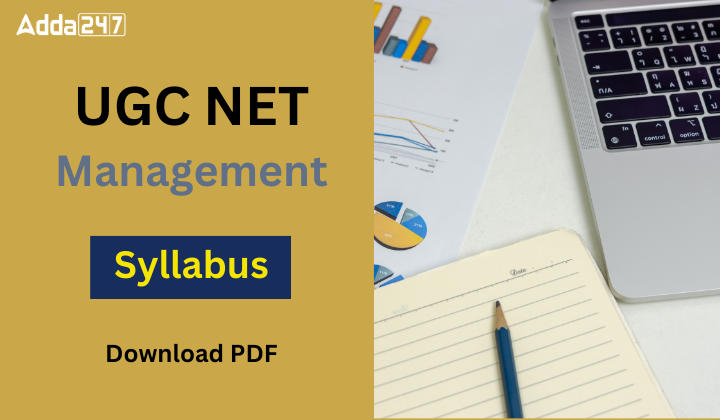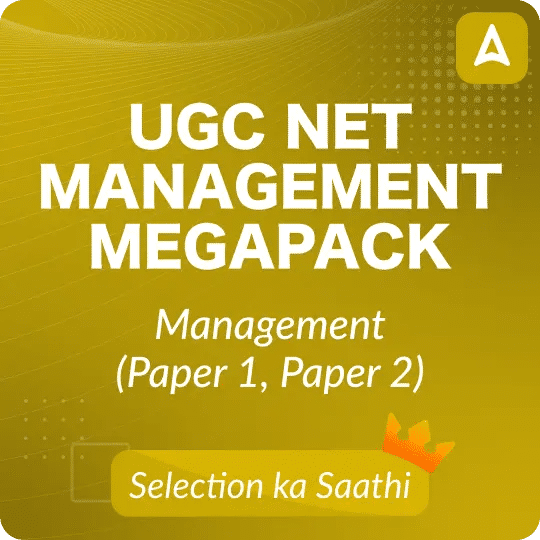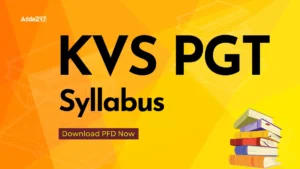Table of Contents
University Grants Commission has released UGC NET Management Syllabus 2025 on official website. Aspirants who chose Management as the main subject can find the detailed syllabus. The UGC NET Management Syllabus 2025 is published on the official website and candidates who are preparing to appear for the UGC NET Management Exam must read the detailed syllabus thoroughly for a better understanding of its specifics and nuances. NET being a national-level eligibility test, asks candidates to put their best foot forward for the UGC exam preparation.
UGC NET Management Syllabus 2025: Overview
National Testing Agency has announced and conducting the UGC NET exam 2025 for the 2nd time this year. Preparing for a national-level exam in management discipline needs a strong determination and a thorough understanding of the syllabus. Candidates enrolled in Management subjects must be looking for the UGC NET Management Syllabus 2025. For this purpose, we have detailed this article. The candidates must refer to the following table for further details on UGC NET Management Syllabus.
| UGC NET Management Syllabus | |
| Name of the Exam | National Eligibility Test (NET) |
| Conducting Body | National Testing Agency (NTA) |
| Exam Conducted in A Year | Twice a Year |
| Mode of Examination | Online |
| Type of Questions | Multiple Choice Questions (MCQs) |
| Number of Papers |
|
| Number of Questions | 150 |
| Time Duration | 3 hours |
| Negative Marking | No |
UGC NET Management Exam Pattern
The candidates must check out the following table under the UGC NET Management Exam Pattern in depth. Understanding the pattern closely can help in time management by prioritising what should be attempted 1st. This helps in understanding what to focus more upon.
| UGC NET Management Exam Pattern 2025 | |||
| Paper | Marks | Number of Questions (All Are Compulsory) | Duration of Exam |
| Paper I | 100 | 50 | 03 hours |
| Paper II | 200 | 100 | |
UGC NET Management Marks Distribution
The UGC NET Management Exam will consist of two papers which will be conducted without any intervals. Aspirants preparing for the exam must acquaint themselves with the marking scheme and UGC NET Management Syllabus 2025 for both Paper 1 and Paper 2. The exam format for NET Management 2025 will comprise Objective Type Multiple Choice Questions and will have a time limit of three hours. Familiarizing themselves with the UGC Marking System for both papers can aid candidates in securing good scores.
| UGC NET Management Marks Distribution | |
| Correct Answer | 2 Marks |
| Incorrect/ Wrong Answer | No negative Marking |
| Unattempted Questions | NIL |
UGC NET Management Syllabus
| UGC NET Management Syllabus | |
| Unit | Syllabus |
| Unit I |
|
| Unit II |
|
| Unit III |
|
| Unit IV |
|
| Unit V |
|
| Unit VI |
|
| Unit VII |
|
| Unit VIII |
|
| Unit IX |
|
| Unit X |
|
UGC NET Management Syllabus PDF
Although if you have read the article till here, you must have got a brief idea about the topics in the management discipline. However, a detailed syllabus can help in understanding the UGC NET Management Syllabus 2025 in depth. A list of UGC NET Management Syllabus PDFs is given below, to download the PDFs understand the syllabus your way. The candidates must click on the following link to access the UGC NET Management Syllabus PDF.
| UGC NET Management Syllabus PDF | |
| UGC NET Management Syllabus PDF Hindi | Click Here |
| UGC NET Management Syllabus PDF English | Click Here |
UGC NET Management
UGC NET Management refers to the National Eligibility Test conducted by the University Grants Commission (UGC) covering an in-depth UGC NET Management Syllabus 2025. It is a prestigious examination designed to determine the eligibility of candidates for the role of Assistant Professor and Junior Research Fellowship (JRF) in the field of Management.
In this article, we learned about the UGC NET Management Syllabus 2025 which evaluates the knowledge, understanding, and proficiency of applicants in various areas such as organizational behaviour, marketing, human resource management, financial management, strategic management, and more. It serves as a platform for aspiring scholars and academicians to showcase their expertise and contribute to the field of management research and teaching.




 KVS PGT Syllabus 2025, Download PGT Syll...
KVS PGT Syllabus 2025, Download PGT Syll...
 UGC NET Forensic Science Syllabus 2025 a...
UGC NET Forensic Science Syllabus 2025 a...
 UGC NET Visual Arts Syllabus 2025 PDF Do...
UGC NET Visual Arts Syllabus 2025 PDF Do...














